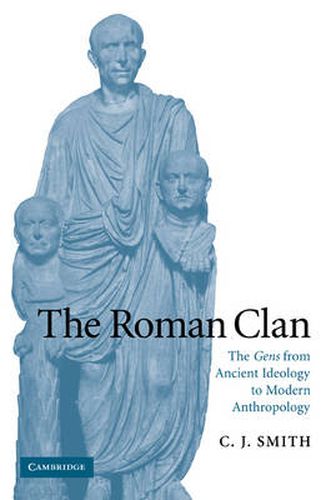Readings Newsletter
Become a Readings Member to make your shopping experience even easier.
Sign in or sign up for free!
You’re not far away from qualifying for FREE standard shipping within Australia
You’ve qualified for FREE standard shipping within Australia
The cart is loading…






The gens, a key social formation in archaic Rome, has given rise to considerable interpretative problems for modern scholarship. In this comprehensive exploration of the subject, Professor Smith examines the mismatch between the ancient evidence and modern interpretative models influenced by social anthropology and political theory. He offers a detailed comparison of the gens with the Attic genos and illustrates, for the first time, how recent changes in the way we understand the genos may impact upon our understanding of Roman history. He develops a concept of the gens within the interlocking communal institutions of early Rome, which touches on questions of land ownership, warfare and the patriciate, before offering an explanation of the role of the gens and the part it might play in modern political theory. This significant work makes an important contribution not only to the study of archaic Rome, but also to the history of ideas.
$9.00 standard shipping within Australia
FREE standard shipping within Australia for orders over $100.00
Express & International shipping calculated at checkout
The gens, a key social formation in archaic Rome, has given rise to considerable interpretative problems for modern scholarship. In this comprehensive exploration of the subject, Professor Smith examines the mismatch between the ancient evidence and modern interpretative models influenced by social anthropology and political theory. He offers a detailed comparison of the gens with the Attic genos and illustrates, for the first time, how recent changes in the way we understand the genos may impact upon our understanding of Roman history. He develops a concept of the gens within the interlocking communal institutions of early Rome, which touches on questions of land ownership, warfare and the patriciate, before offering an explanation of the role of the gens and the part it might play in modern political theory. This significant work makes an important contribution not only to the study of archaic Rome, but also to the history of ideas.